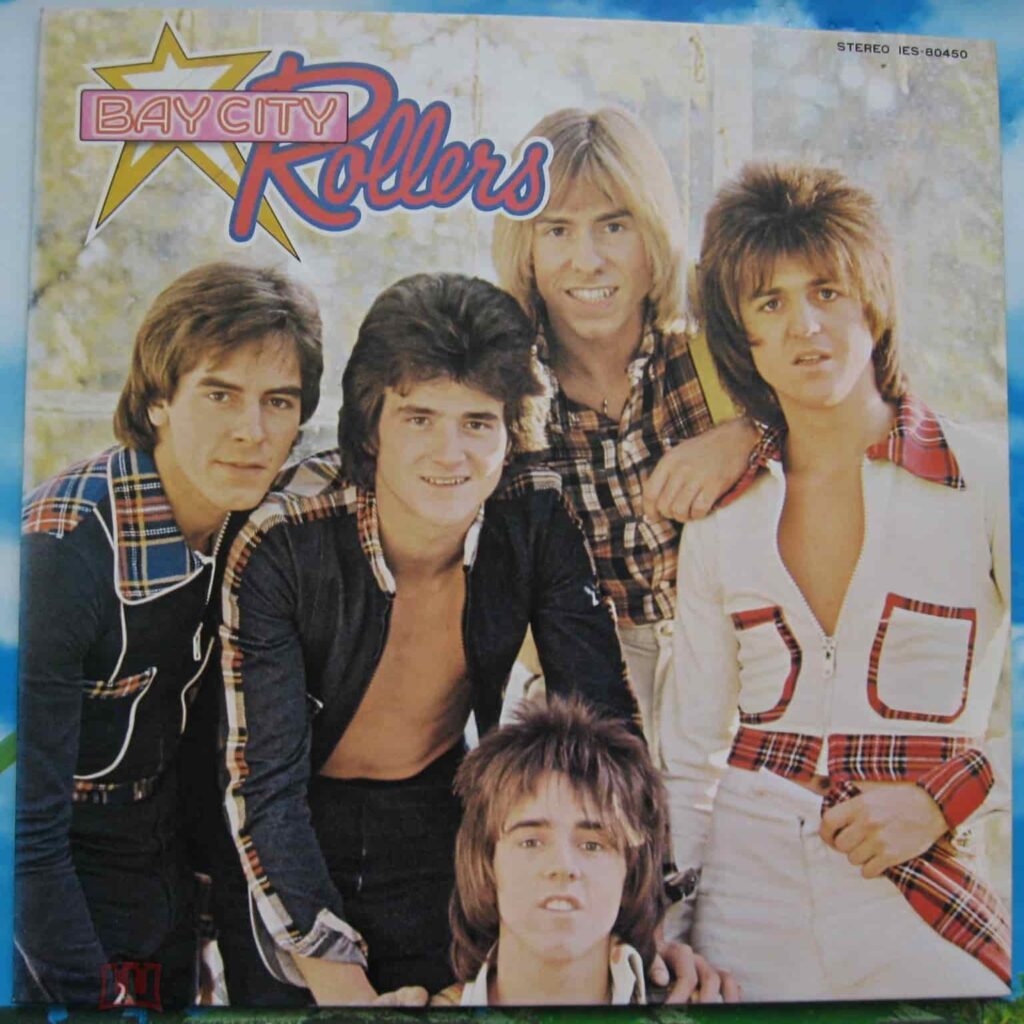
A Timeless Plea for Affection from Scotland’s Pop Darlings
Ah, “Be My Baby” by the irrepressible Bay City Rollers – a song that echoed the fervent hopes of a generation yearning for connection and young love. Released in the spring of 1975, this infectious slice of pop perfection swiftly climbed the charts, nestling itself comfortably at the coveted number three spot on the UK Singles Chart. In a musical landscape often dominated by more serious or overtly rebellious sounds, the Rollers offered an unabashed celebration of youthful exuberance and the simple desire to be loved.
The story behind “Be My Baby” is intertwined with the meteoric rise of the Bay City Rollers, a band that seemingly materialized from the streets of Edinburgh to become a global phenomenon. Formed in the late 1960s, the lineup that captured the hearts of millions featured the charismatic Les McKeown on lead vocals, alongside guitarists Eric Faulkner and Stuart Wood, bassist Alan Longmuir, and drummer Derek Longmuir. By the mid-1970s, “Rollermania” was in full swing. Their tartan-clad image and catchy, upbeat tunes resonated deeply with a young audience hungry for idols they could truly embrace.
“Be My Baby” wasn’t an original composition by the band, but rather a carefully chosen cover of The Ronettes’ iconic 1963 hit. However, the Bay City Rollers infused it with their signature blend of youthful energy and pop sensibility, making it their own. Their rendition retained the original’s heartfelt plea for affection but added a layer of their distinctive harmonies and a slightly more driving beat, perfectly aligning with the vibrant spirit of the era. It was a testament to their ability to take a beloved classic and reimagine it for a new generation, introducing many of their young fans to the brilliance of Phil Spector’s Wall of Sound production, albeit in a slightly more polished, 70s pop framework.
The meaning of “Be My Baby” is universal and timeless: a straightforward expression of longing for romantic commitment. The simple yet profound lyrics, “Be my baby, my one and only baby,” speak directly to the core desire for a special connection with another person. In the context of the mid-1970s, a time of burgeoning youth culture and the exploration of nascent romantic feelings, this message resonated deeply. For countless teenagers, “Be My Baby” became an anthem, a soundtrack to first crushes, tentative dances, and the hopeful anticipation of young love blossoming. It was a song that articulated the innocent yearning that many felt but couldn’t always express.
The inclusion of “Be My Baby” on their hugely successful album, “Wouldn’t You Like It?”, further cemented its place in the pop culture lexicon of the time. This album, released in 1975, was a chart-topping sensation, fueled by a string of hit singles and the band’s relentless touring schedule. It perfectly captured the infectious energy and optimistic spirit that defined the Bay City Rollers‘ appeal.
Looking back, “Be My Baby” remains a poignant reminder of a simpler time in pop music, when catchy melodies and heartfelt lyrics were paramount. It evokes memories of transistor radios, school discos, and the innocent dreams of youth. The song’s enduring appeal lies in its timeless message of wanting to be someone’s special person, a sentiment that transcends generations. Even today, the infectious “sha-la-la-la” chorus can transport listeners back to a time of youthful exuberance and the uncomplicated joy of a pop song done right. The Bay City Rollers‘ rendition of “Be My Baby” wasn’t just a hit song; it was a cultural touchstone, a vibrant thread in the tapestry of 1970s pop that continues to evoke a sense of warmth and nostalgia for those who were there, and a charming glimpse into the past for those who discovered it later. It stands as a testament to the power of a simple love song, delivered with youthful energy and undeniable charm.